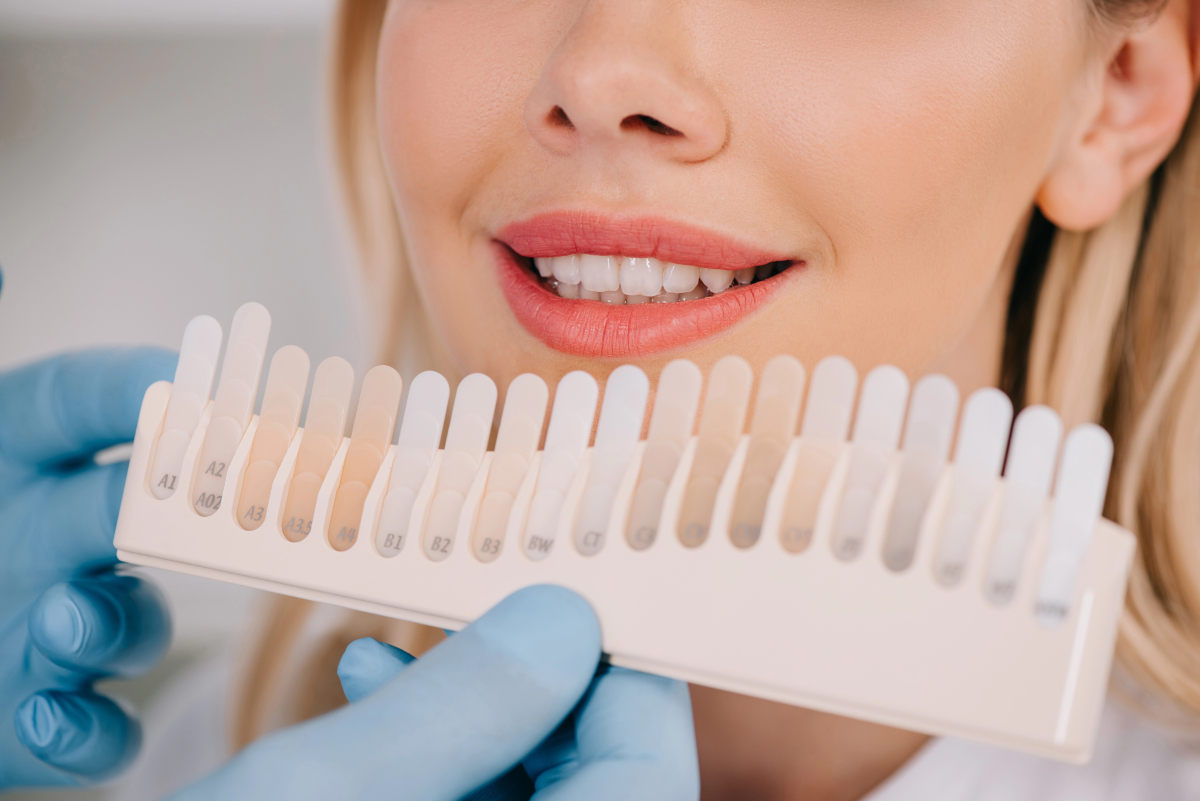Contents

Teeth Whitening: Cost, Insurance Coverage, and Risks in 2025
This guide covers everything you need to know about teeth whitening: the different techniques, their costs, insurance coverage considerations, potential risks, and tips for maintaining a bright, safe smile.
What Is Teeth Whitening and How Does It Work?
Teeth whitening is a cosmetic dental procedure designed to lighten the shade of your teeth and remove stains or discoloration. It is not considered a medically necessary treatment. The process typically uses a whitening agent, most commonly hydrogen peroxide or carbamide peroxide, which breaks down stain molecules within the tooth's enamel, resulting in a brighter appearance. Professional whitening performed by a dentist offers the safest and most effective results.
| Criteria | Information |
|---|---|
| Average Price in the US | $650 (ranging from $400 to $1,200) |
| Insurance Coverage | Rarely covered; considered cosmetic. |
| Who is it for? | Adults with healthy teeth and gums (excluding pregnant women). |
Average Cost of Different Whitening Techniques in 2025
There are several whitening methods, each with a different price point:
- Take-Home Trays from a Dentist: Custom-fitted trays with professional-strength gel, worn at home. This method offers excellent results over a period of 1-2 weeks.
- In-Office Laser Whitening: The fastest and most dramatic option. A powerful whitening gel is activated by a special light or laser in the dental office.
- Over-the-Counter (OTC) Products: Whitening strips, gels, and pens that are less expensive but also less potent than professional options.
Does Dental Insurance Cover Teeth Whitening?
Because teeth whitening is classified as a cosmetic procedure, it is almost never covered by standard dental insurance plans. Insurance is designed to cover medically necessary treatments that maintain oral health, not elective procedures that only improve appearance. While some high-end plans may offer a small allowance for cosmetic services, patients should expect to pay for whitening out-of-pocket. The best way to manage this cost is often by using pre-tax funds from a Flexible Spending Account (FSA) or Health Savings Account (HSA).
Why Do People Whiten Their Teeth?
People choose to whiten their teeth for a variety of reasons, primarily to improve the aesthetics of their smile, boost self-confidence, and create a more youthful appearance. Whitening can correct discolorations caused by aging, smoking, and the consumption of staining foods and beverages.
Duration and Maintenance of Whitening Results
The whitening effect is not permanent and typically lasts from 6 months to 3 years, depending heavily on lifestyle and oral hygiene. To preserve the brightness of your whitened teeth, it is essential to:
- Maintain excellent oral hygiene.
- Limit consumption of staining agents like coffee, tea, and red wine.
- Avoid smoking.
- Schedule regular touch-up treatments as recommended by your dentist.
Understanding the Risks and Contraindications
Numerous studies confirm that teeth whitening is safe when performed under the supervision of a dentist. However, there are contraindications:
- It is not recommended for pregnant or breastfeeding women.
- Patients must have healthy teeth and gums, free of cavities or active gum disease.
- Whitening agents do not work on restorations like crowns, veneers, or fillings.
The most common side effect is temporary tooth sensitivity, which usually subsides after the treatment is completed. Using a desensitizing toothpaste can help manage this.
Who Is a Good Candidate for Teeth Whitening?
The best candidates for teeth whitening are adults with healthy, unrestored teeth who have yellow-toned stains. It is recommended to be at least 18 years old. A pre-whitening dental exam is crucial to ensure the procedure is safe and appropriate for you.
FAQ: Your Top Questions About Teeth Whitening
To prolong the effects, avoid staining foods and drinks for at least 48 hours after treatment. Maintain excellent oral hygiene, use a whitening toothpaste occasionally, and consider touch-up treatments every 6-12 months as recommended by your dentist.
For most people, yes. Professional whitening offers safer, faster, and more dramatic and consistent results than over-the-counter products. The supervision of a dentist ensures the procedure is appropriate for you and minimizes the risk of side effects like severe sensitivity or gum damage.
When performed correctly under professional supervision, teeth whitening is safe and does not damage tooth enamel. The whitening agents are formulated to pass through the enamel to bleach the underlying dentin without harming the tooth structure. Overuse or improper use of whitening products can, however, lead to enamel erosion and sensitivity.
